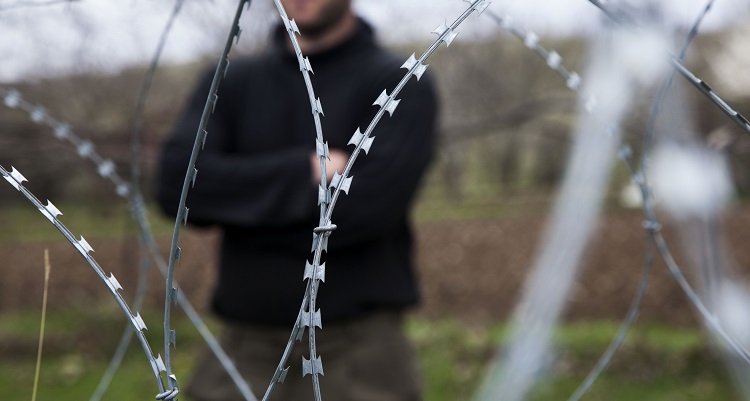Occupation forces release illegally arrested Georgian citizen from occupied Tskhinvali prison

Illegal arrests of Georgian nationals are a common issue near the occupation line. Photo: Nino Alavidze/Agenda.ge
Russian-controlled occupation forces on Tuesday released Nukri Kalashnikov, a Georgian citizen illegally arrested in June, from a prison in the occupied Tskhinvali region in central Georgia, the Georgian state security service confirmed.
In its comments, the agency said the hotline mechanism and other tools at the disposal of the Georgian government for developments related to the occupied region had been “actively used” in the process of releasing Kalashnikov, who had been charged with “illegally crossing the border” by occupation forces.
The issue of Kalashnikov’s release from illegal detention was also discussed at the recent incident prevention and response mechanism meeting in the village of Ergneti, said the security service.
The public was informed about Kalashnikov’s arrest last Friday.
 According to official statistics, between 2009-2019 (until the end of August 2019) a total of 3,193 Georgian citizens were illegally arrested by Russian-controlled occupation forces from both Tskhinvali and Abkhazia regions. In particular, 1,932 were arrested by de facto Abkhaz authorities and the remaining 1,261 - by de facto Tskhinvali government. Photo: Nino Alavidze/Agenda.ge.
According to official statistics, between 2009-2019 (until the end of August 2019) a total of 3,193 Georgian citizens were illegally arrested by Russian-controlled occupation forces from both Tskhinvali and Abkhazia regions. In particular, 1,932 were arrested by de facto Abkhaz authorities and the remaining 1,261 - by de facto Tskhinvali government. Photo: Nino Alavidze/Agenda.ge.
Gela Iobashvili, a local of Perevi village near the occupied Tskhinvali, was also arrested by de facto authorities.
Four Georgian citizens remain in illegal detention in Tskhinvali, including Mamuka Chkhikvadze, a former Georgian servicemember who has been sentenced to three years and eight months in prison for “illegally crossing the border”.
- EUMM Georgia marks 14th anniversary in country as only foreign mission monitoring Russian occupation
Illegal arrests of Georgian nationals are a common issue near the occupation line separating the region from the rest of the country. Usually, those arrested are released once their families pay a fine.
Russia recognised the independence of Georgia’s occupied Abkhazia and Tskhinvali regions on August 26, 2008, following the war. However, only four other countries – Venezuela, Nicaragua, Nauru and Syria – have since shared Russia’s position regarding the occupied Georgian territories’ status, with the rest of the international community maintaining that the regions are parts of Georgia under Russian occupation.
 Tweet
Tweet  Share
Share